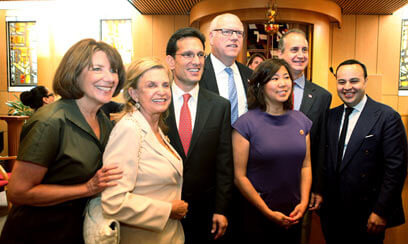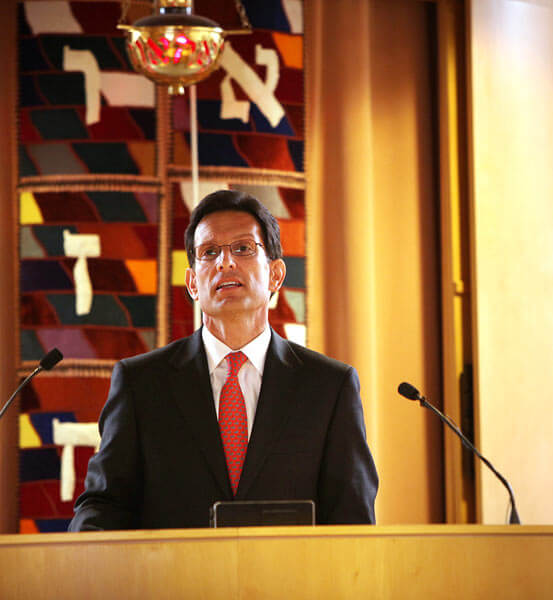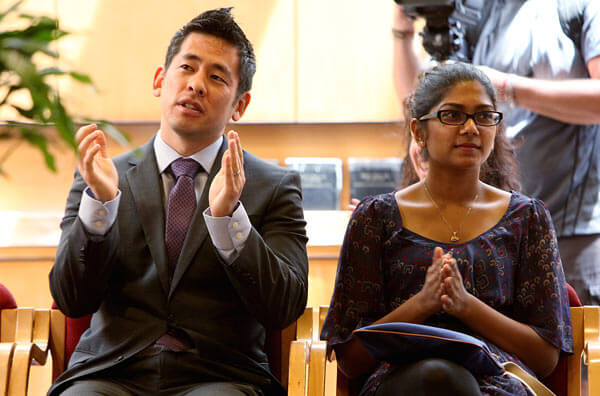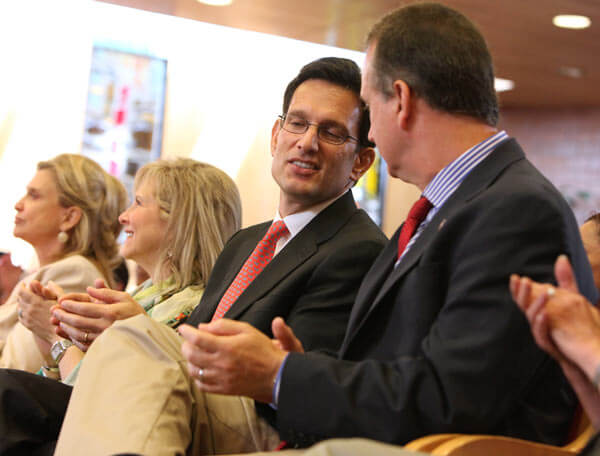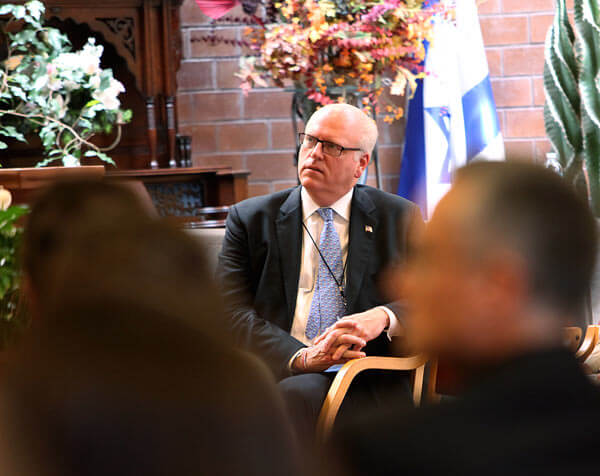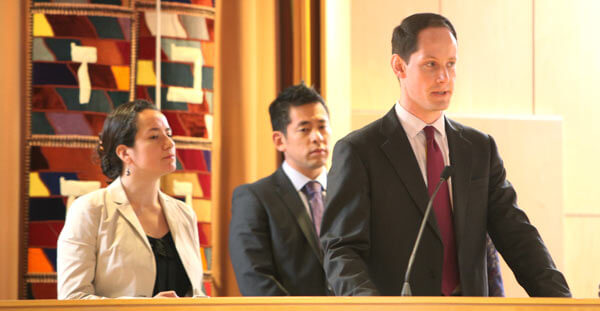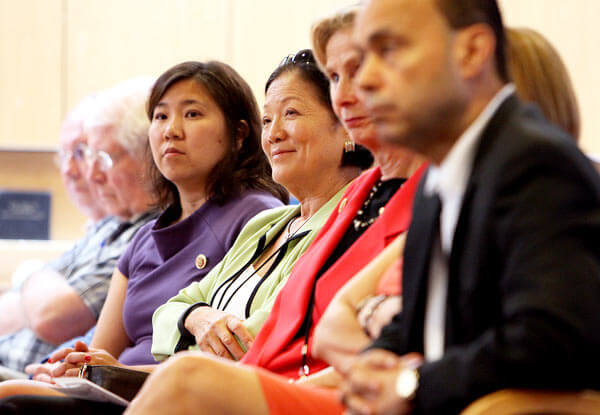By Christina Santucci
On a final stop in a weekend geared toward examining immigration in New York City, federal lawmakers gathered in Jackson Heights to hear the story of how one of their own ended up in this country and to listen to advocates and a young woman whose immigration status remains somewhat in limbo.
“My family’s story, like so many, began when my grandparents fled anti-Semitic persecution in Russia to come to America. Widowed at a young age, my grandmother raised her two sons as a single-mother in the segregated South,” U.S. House Majority Leader Eric Cantor (R-Va.) told fellow members of Congress and the audience inside the Jackson Heights Jewish Center Saturday. “With little but her thrift and faith she worked hard to ensure her children could realize the promise of this great country.”
The event was the final stop in The Faith & Politics Institute’s Becoming America Congressional Pilgrimage, which included U.S. representatives as well as U.S. Sen. Mazie Hirono (D-Hawaii) from both sides of the aisle and from around the country. Reps. Joseph Crowley (D-Jackson Heights) and Mario Diaz Balart (R-Fla.) served as the events’ honorary co-leaders.
Balart credited Crowley with serving as the group’s tour guide and inspiration during the trip, which included visits to Ellis Island, the African Burial Ground National Monument, the Museum of Jewish Heritage and the National September 11 Memorial.
In Queens, the group heard from Ana Maria Archila, co-executive director of Make the Road New York; Steven Choi, executive director of the New York Immigration Coalition; and John Stahl, director of legal services at the Emerald Isle Immigration Center.
Stahl spoke about the center’s work, providing legal assistance, citizenship preparation, adult literacy programs, social services and employment guidance. Started 25 years ago to assist newly arrived Irish immigrants, Emerald Isle, which has offices in both Woodside and Woodlawn, has branched out over time, and in the past year the organization assisted newcomers from 52 countries, including Ireland, Stahl said.
Archila spoke about her aunt, Saramaria Archila, an activist and lawyer who traveled to the United States from Colombia and founded the Latin American Integration Center, which later merged with Make the Road By Walking to form Make the Road New York. By 2000, the Latin American Integration Center had helped more than 10,000 New Yorkers become U.S. citizens, Ana Maria Archila said.
“After 10 years, [Saramaria Archila] got her own citizenship and was able to vote for the first time in 2003, and she passed away a few months later but with the satisfaction that she got to exercise that very dear right she loved so much and helped so much people achieve,” her niece told the audience.
The final speaker to address lawmakers was 21-year-old Nadia Habib, who was brought to the United States at 18 months old from Bangladesh by her mother so they could be reunited with Habib’s father, who was already living in the country.
“We remained after our visas expired because my father thought it would be better if we stayed with him,” she said. “America to him was a land of opportunity.”
Habib described growing up as an undocumented immigrant in contrast to her two brothers, who are American citizens. For example, she was unable to apply for financial aid for school.
“Our worst fears came true when after living in the U.S. for 18 years, my mother and I received a deportation letter with an order of removal,” she told the crowd.
With the help of immigration advocates, the pair was issued a stay of removal in 2011, which could be lifted at any time, and Habib was able to secure a work permit, which was extended under the Deferred Action for Childhood Arrivals program. She said she hopes to continue her education and eventually become an architect.
“Hope is what keeps so many people going and it is why I am standing before you today,” the recent Stony Brook University graduate said.

